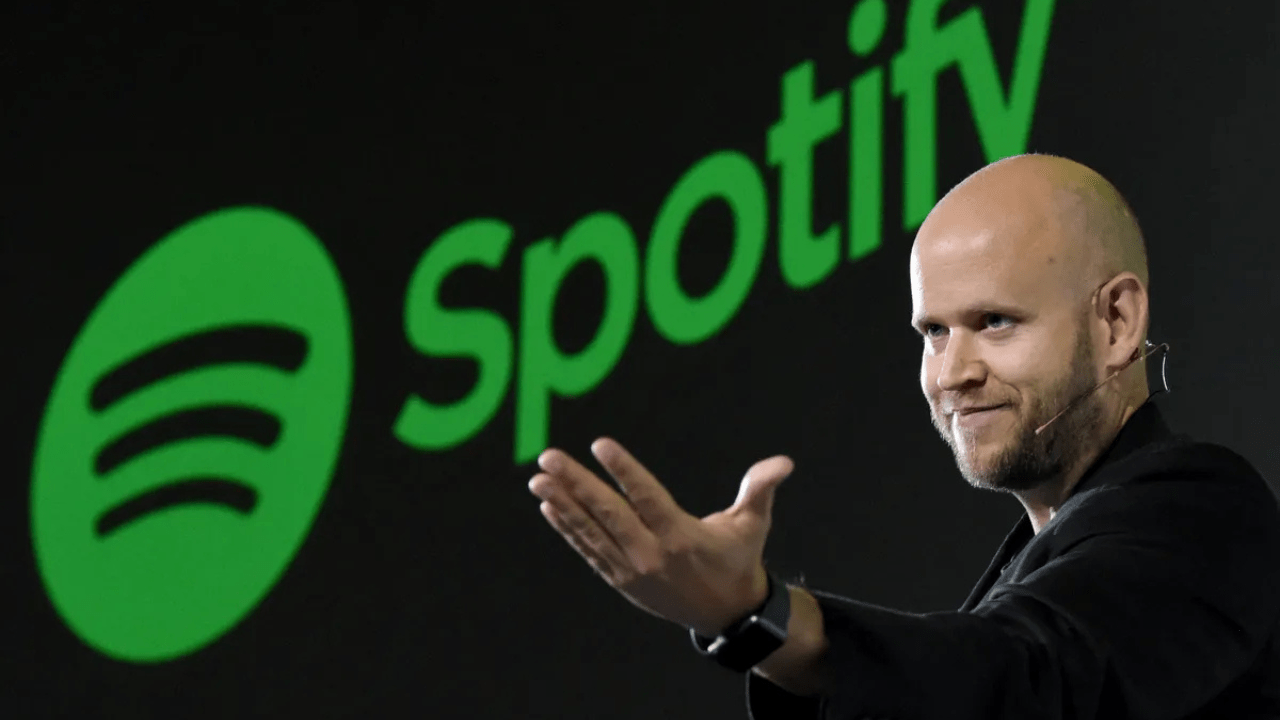The digital age has transformed the way we experience music, and at the center of this transformation is Spotify. Founded in 2006, Spotify has redefined music streaming, making millions of songs accessible to users across the globe. Behind this revolutionary platform stands Spotify founder Daniel Ek, a visionary who combined technology and music to create an unparalleled service.
This blog delves into the life and achievements of Daniel Ek, exploring his journey, the challenges he faced, and how he changed the music industry forever.
Who is Spotify Founder Daniel Ek?
Daniel Ek, born on February 21, 1983, in Stockholm, Sweden, is the co-founder and CEO of Spotify. From a young age, Ek showed an interest in technology and entrepreneurship, setting the stage for his future success.
Early Life and Education
- Raised in Rågsved, a suburb of Stockholm.
- Started programming at the age of 13 and quickly became proficient.
- Studied at the KTH Royal Institute of Technology but dropped out to pursue entrepreneurial ventures.
Early Career
Before Spotify, Ek gained experience in the tech world:
- Founded Advertigo, an online advertising company.
- Worked as the CTO of Stardoll, a social media platform.
- Sold Advertigo to TradeDoubler, where he met Martin Lorentzon, his future Spotify co-founder.
The Birth of Spotify
In 2006, Daniel Ek and Martin Lorentzon came together with a shared vision: to combat music piracy and create a legal, user-friendly platform for streaming music. The result was Spotify, a platform that would go on to revolutionize the music industry.
The Idea Behind Spotify
At the time, music piracy was rampant, with platforms like Napster and LimeWire causing significant losses for artists and record labels. Ek envisioned a service that would:
- Provide Unlimited Music: Offer a vast library of songs at users’ fingertips.
- Be Affordable: Make streaming accessible through a freemium model.
- Support Artists: Ensure fair compensation for musicians and rights holders.
Building the Platform
- Ek and Lorentzon funded Spotify initially with their own money.
- The platform launched in 2008 in Sweden before expanding globally.
- Early challenges included negotiating licensing deals with major record labels.
Spotify’s Impact on the Music Industry
Spotify’s success lies in its ability to disrupt traditional models and adapt to the digital era. The platform introduced:
1. Freemium Model
Users can stream music for free with ads or upgrade to premium for an ad-free experience.
2. Global Reach
Spotify is now available in over 180 countries, connecting millions of users with their favorite music.
3. Support for Artists
While the platform has faced criticism over royalties, it has also provided artists with global exposure and new revenue streams.
4. Data-Driven Insights
Spotify Wrapped and other tools allow users and artists to analyze listening trends, creating a personalized experience.
Challenges Faced by Spotify Founder Daniel Ek
The journey to success was not without hurdles. As the founder of Spotify, Daniel Ek faced:
1. Industry Resistance
Convincing record labels to embrace streaming as a viable model was a significant challenge.
2. Royalties Debate
Spotify has been criticized for its payout structure, with some artists arguing that they don’t receive fair compensation.
3. Competition
Spotify faces fierce competition from platforms like Apple Music, Amazon Music, and YouTube Music.
4. Tech and Privacy Issues
As a tech platform, Spotify must continuously innovate while addressing user concerns about data privacy.
Spotify Founder’s Vision for the Future
Daniel Ek is not just focused on streaming; he envisions Spotify as a comprehensive platform for all audio content.
Key Innovations Under Ek’s Leadership:
- Podcasts: Spotify has invested heavily in podcasts, acquiring companies like Anchor and Gimlet Media.
- Live Audio: With the acquisition of Locker Room (now Spotify Greenroom), Spotify is entering the live audio space.
- Personalization: AI-driven recommendations ensure users discover music and podcasts tailored to their tastes.
- Support for Independent Artists: Initiatives like Spotify for Artists empower creators to manage their profiles and reach audiences directly.
Lessons from Spotify Founder Daniel Ek
Ek’s journey offers valuable insights for aspiring entrepreneurs:
1. Identify a Problem
Spotify was born out of a desire to solve the problem of music piracy.
2. Innovate Continuously
Spotify’s success lies in its ability to adapt to changing trends and user needs.
3. Build Strong Partnerships
Ek’s collaboration with record labels, artists, and tech companies was crucial to Spotify’s growth.
4. Stay Resilient
Despite criticism and challenges, Ek remained focused on his vision, driving Spotify to global success.
Spotify Today: A Legacy in the Making
Under Daniel Ek’s leadership, Spotify has become the world’s leading music streaming platform, with over 500 million active users and 200 million premium subscribers as of 2023. The platform continues to innovate, setting the standard for digital music consumption.
Final Thoughts
Daniel Ek, the Spotify founder, transformed the way we listen to music, creating a platform that is as much about discovery and connection as it is about entertainment. His journey from a young programmer in Sweden to a global tech leader is an inspiring tale of innovation, resilience, and vision.
Related Articles:
For further reading, explore these related articles:
- How to Save Songs Offline on Spotify: A Comprehensive Guide
- Spotify Wrapped 2020 Artists: Celebrating the Year’s Top Music
For additional resources on music marketing and distribution, visit Deliver My Tune.






